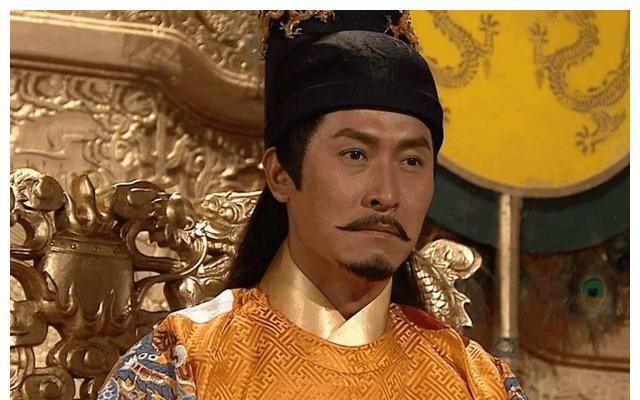Speaking of the emperor of the Ming Dynasty, everyone first thinks of Zhu Yuanzhang, who should be the first commoner emperor in Chinese history, or Zhu Di, the Ming Chengzu who has a lifetime of outstanding martial arts, or the Wanli Emperor of Jiajing, etc. Few people can think of our protagonist today, Emperor Mingren, Zhu Gaozi, when mentioning the Ming Dynasty.

The emperor reigned for a short time, only ten months. However, this emperor was one of the few benevolent rulers in the Ming Dynasty, and he began the process of the rule of Renxuan, implementing benevolent government in the Ming Dynasty, alleviating sharp social contradictions, and also making great contributions to the development of the agricultural economy. Therefore, although the emperor's popularity is not high, he occupies an important position in the development of the Ming Dynasty.
The reason why the late Ming Dynasty was able to carry out major military activities such as the Three Great Expeditions of the Wanli Dynasty, and the reason why it was able to spend more than 16 million silver without dragging down the finances at that time, had a great relationship with its foundation for agricultural development. So let's take a closer look at the emperor's contribution to the history of the Ming Dynasty today.
Although Emperor Akihito's reign lasted only ten months, his history of overseeing the state was long. Zhu Gaozi's father was the famous Ming Chengzu Zhu Di, and we all know that if zhu Di was in accordance with the orthodox order of emperor succession of the Ming Dynasty, Zhu Di was actually not eligible to inherit the throne, so if he wanted to take the power of the Ming Dynasty into his own hands, he could only compete through military action in the Battle of Jingnan, and when Zhu Di led his army to the south and the northern war, it was Zhu Gaozi who stabilized the rear area for him. Zhu Gaozi united his subordinates and successfully blocked the 500,000-strong army of Li Jinglong, the general of Emperor Jianwen, with an army of 10,000 people, and saved his father's rear.
Until Ming Chengzu Zhu Di succeeded to the throne, there was no large-scale chaos in the north at that time, which gave Zhu Di great support, and the success of the Battle of Jingnan was inseparable from Zhu Gaozi, and it was also the process of supervision at this time that Zhu Gaozi had a long understanding of the development of the people, and it was also an important guarantee that he could promulgate a series of benevolent measures in just ten months. After Zhu Gaozi succeeded to the throne, he implemented benevolent government measures in the Ming Dynasty, the most dazzling of which was the three things of resting with the people, practicing frugality, and prudently using decrees.
Resting with the people is an important measure to stabilize the development of the peasants, from the time of Zhu Yuanzhang of the Ming Dynasty to the zhu di period of the Ming Dynasty, although this period of time is the rising period of the development of the Ming Dynasty, but because of the harsh punishment and the chaos of war, the social contradictions have become more and more acute. After Zhu Gaozi succeeded to the throne, he adopted a policy of resting with the people in response to such sharp social contradictions, so that the development of society could be eased and the people could become stable and prosperous in such a stable and peaceful development, which to a great extent resolved the tension in society and thus eased the contradictions between social classes. When the development of the peasants became stable, it stabilized the foundation of a country's development, and Akihito was instrumental in this incident.
Strict frugality was his measure against the Ming Dynasty's financial system and the agricultural development of the time. Zheng He's voyage to the West held by Ming Chengzu Zhu Di seriously depleted the state finances of the Ming Dynasty, and after Akihito took the throne, he stopped such navigational activities, and increased the supervision of the imperial court's expenditures, implemented a frugal policy, and advocated the use of frugal wealth for the relief of the people and disaster relief activities. Thus easing the financial development of the Ming Dynasty, the development of the agricultural economy became more stable with the support of the state finance, and the germ of national capitalism gradually emerged under the condition of such a stable agricultural economic development. Therefore, Akihito also has a great credit for the development of the financial system.
Although Ming Taizu Zhu Yuanzhang created the rule of Hongwu and made the development of the Ming Dynasty more prosperous and stable, the harsh punishment and harsh law he adopted also made the social environment more tense, which hindered the development of the country to a certain extent. After Akihito succeeded to the throne, he issued a policy of prudent use of laws in response to this phenomenon, so that society became relatively open and the people had more room for development. After his death, Emperor Xuanzong of Ming promoted indoctrination on top of this policy, greatly reducing the crime rate throughout the country and pushing the development of the Ming Dynasty to its peak.
In summary, we can see that Emperor Akihito followed the practice of Wenjingzhizhi, stopped Zheng He's treasure ships from going to the West, stopped the royal procurement of jewelry, ordered tax reductions and exemptions, and provided free relief to the disaster areas, so that the productive forces have developed unprecedentedly, and the Ming Dynasty has entered a period of stability and strength. Therefore, although Akihito died after only ten months of reign, he still deserved the title of a generation of renjun.
Reference: History of the Ming Dynasty